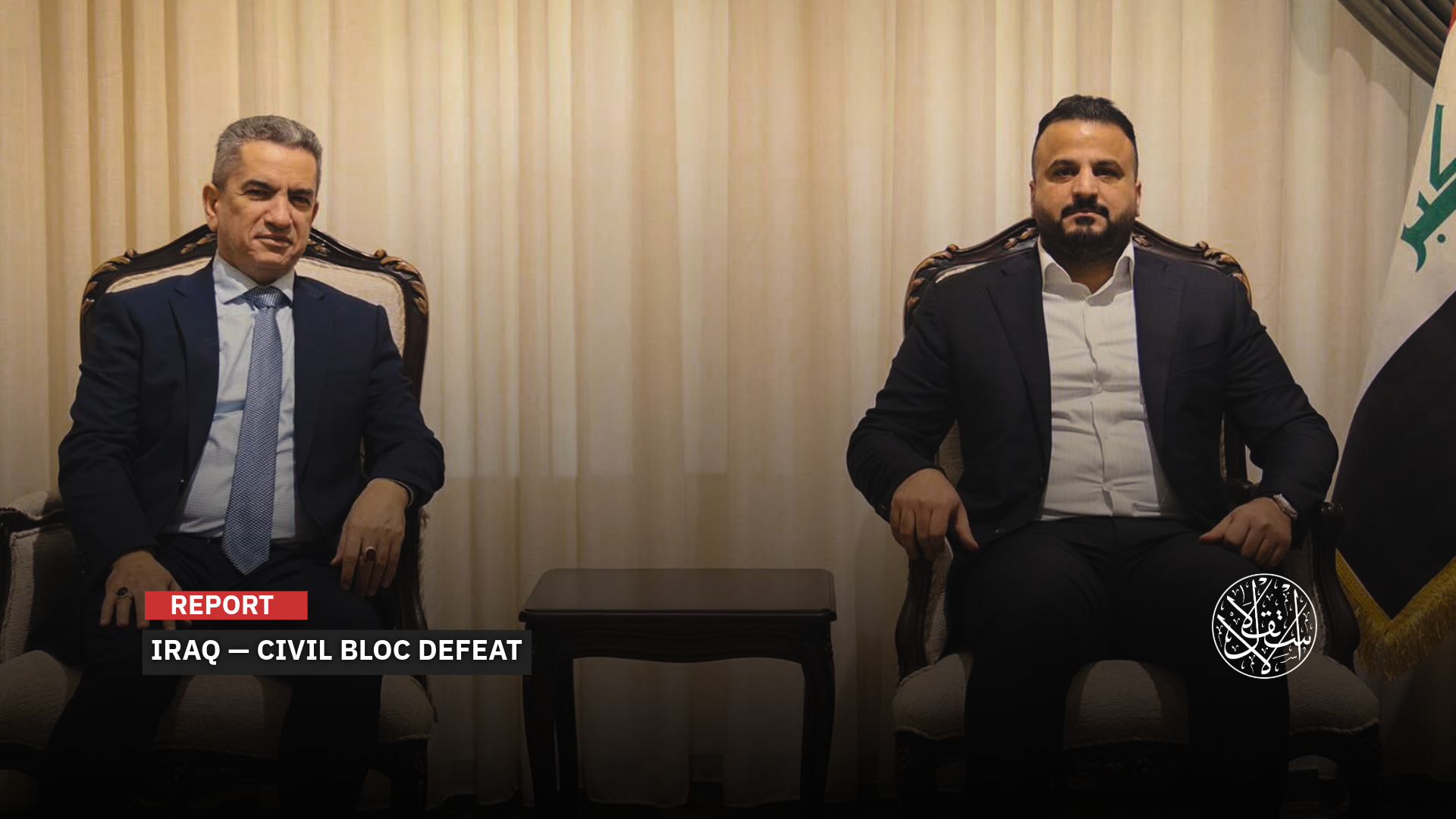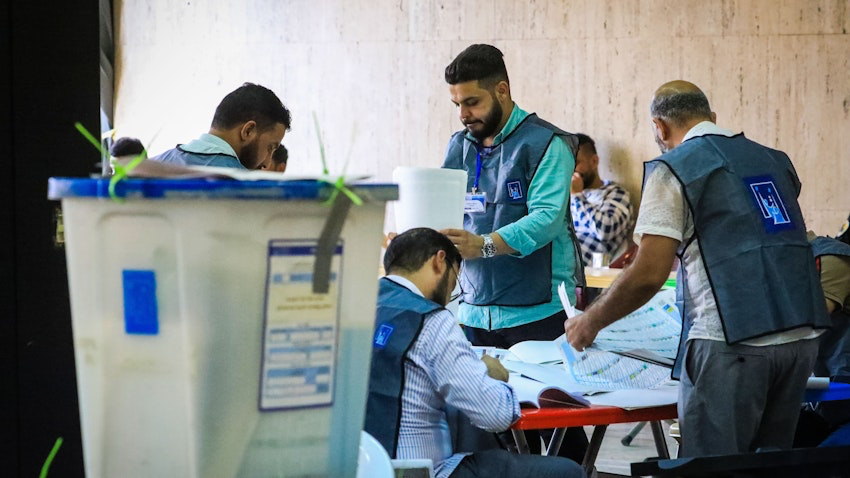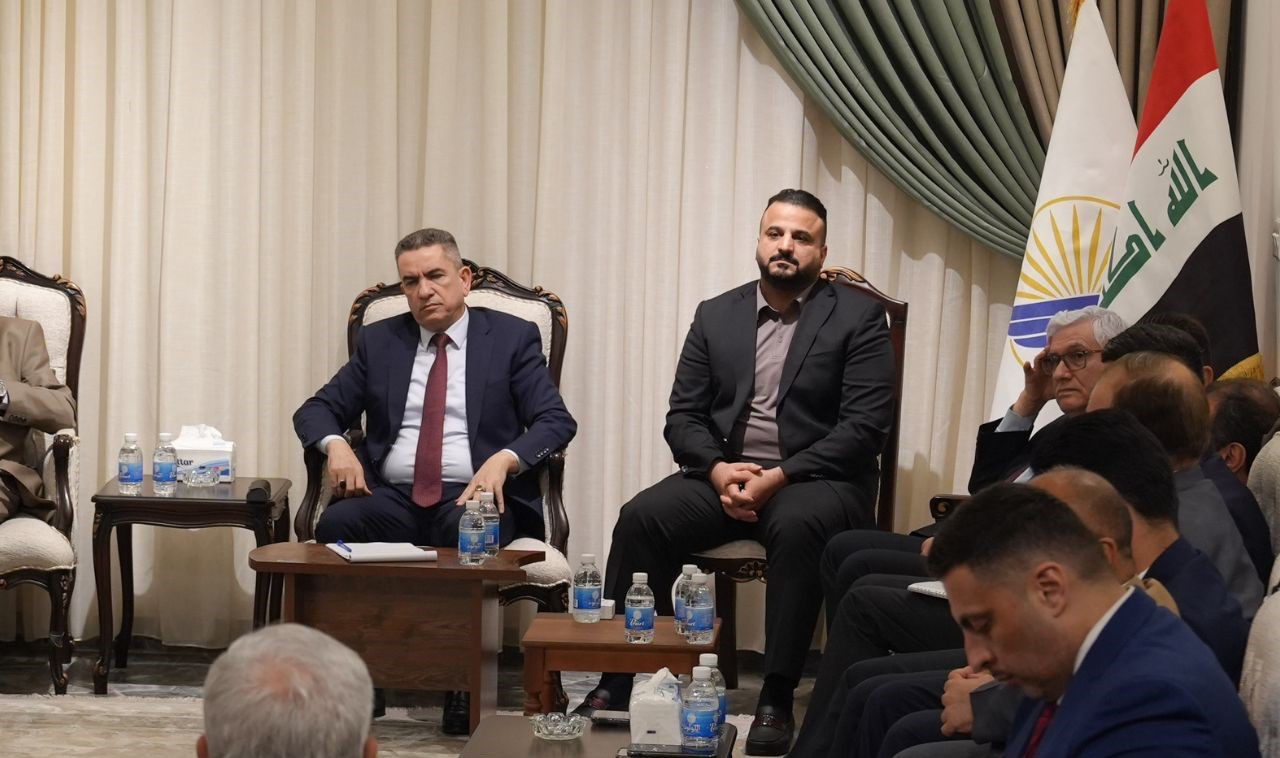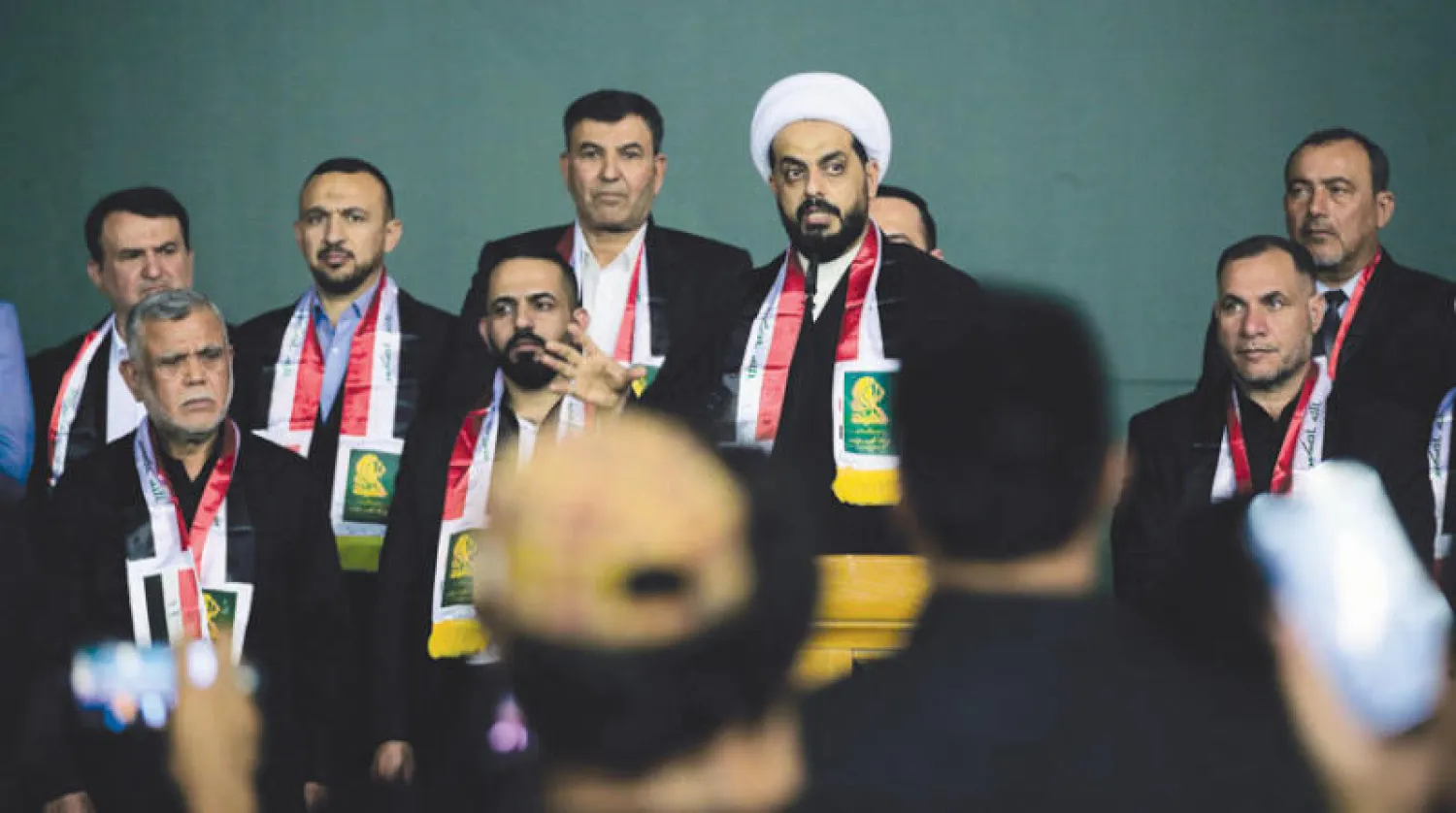Iraq’s Civil Bloc Falls Out of Parliament: What Went Wrong?

The civil movement attributed their loss to the financial imbalance in the electoral race between the lists.
In an unprecedented turn since the post-2003 era that followed the U.S. invasion, Iraq’s civil movement has been reduced to a single seat in parliament after its electoral lists suffered a major setback in the November 11, 2025, vote.
Despite this latest defeat—and an earlier loss in the 2023 provincial elections—traditional parties, especially the Shiite factions targeted by the 2019 October protests, continue to maintain a firm grip on state power and influence.
Echoes of 2019
These developments revive memories of the mass uprising of October 2019, the largest protest movement in Iraq’s modern history. Students from Baghdad and the southern and central provinces formed the backbone of the demonstrations, united around a central demand: holding accountable the political parties that have ruled since 2003, long accused of corruption and entrenching sectarian power-sharing.
The movement was met with a harsh crackdown amid claims it was backed by the United States. Security forces and Iran-aligned militias jointly dispersed protesters under the coordination of a special operations room reportedly overseen by the late Quds Force commander Qassem Soleimani. Human rights groups estimate that nearly 800 protesters were killed and more than 25,000 injured.

A Brutal Defeat
The results of Iraq’s November 11, 2025, parliamentary elections delivered the harshest blow the civil movement has faced since 2003. The main civil alliances (Albadil Alliance, the Iraqi Democratic Current, Fawzakho, and Madaniyoon) collectively managed to secure just one seat out of 389 candidates: that of Basra’s Amer Abdul-Jabbar, head of the Fawzakho alliance.
Aside from Madaniyoon, which fielded 60 candidates in Nineveh, the remaining civil coalitions spread their lists across the central and southern provinces—Baghdad, Basra, Najaf, Karbala, Dhi Qar, Babel, al-Qadisiyyah, and Wasit—along with a limited showing by Albadil in Saladin.
The returns were bleak. In Baghdad, Albadil leader Raid Fahmi secured just 3,364 votes. In Najaf, former MP Adnan al-Zurfi crossed the 3,000-vote mark but still fell short. Former MP Sajad Salem, heading Albadil in Wasit, also finished with slightly over 3,000 votes, while Hussein al-Ghorabi in Dhi Qar ended with 1,989.
In a November 12 statement, Salem acknowledged his defeat and said he wanted to be honest with the Tishreen movement and the families of those who were killed. He noted that he had pushed their cause as far as the political system would allow, stressing that he never wavered from his principles or bowed to financial or political pressure.
Salem attributed the loss to the overwhelming imbalance in resources between civil lists and the entrenched parties that dominate Iraq’s political scene, groups that possess money, influence, and the ability to mobilize dozens of candidates. He added that their campaign had been conducted with integrity, without any vote-buying or abuse of power.
One striking trend is that many of the lawmakers elected in 2021 as representatives of the Tishreen protest movement have now lost their seats after joining other political blocs, especially the Reconstruction and Development Coalition led by Prime Minister Mohammed Shia’ al-Sudani.
The 2021 elections saw only limited participation from protest movement forces, resulting in roughly 20 seats out of 329, while a wide segment of Tishreen activists boycotted the vote entirely.

Sectarian Mobilization
Commenting on the sharp decline of the civil movement in the 2025 elections, Iraqi affairs researcher Bahaa al-Din al-Barzanji said the results were largely shaped by an aggressive wave of Shiite sectarian mobilization led by Coordination Framework parties, leaving civil candidates with virtually no room to compete. Figures like Adnan al-Zurfi, he explained, simply don’t command a broad popular base, while the established Shiite blocs were able to rally their voters in large numbers.
Speaking to Al-Estiklal, al-Barzangi argued that the Coordination Framework now holds the reins of Iraqi politics, while the civil movement, which has generally been viewed as more aligned with the U.S., has all but disappeared from the scene. The election outcome, he said, provided a clear boost to Iran-aligned groups, while putting Prime Minister Mohammed Shia’ al-Sudani’s Reconstruction and Development Coalition in a politically boxed-in position.
Al-Barzangi noted that Zurfi’s diminished prospects as a potential prime-ministerial candidate stem directly from his bloc’s “crushing defeat.” He added that the current phase, during which media outlets float various names for the premiership, is typically a period of “name-burning,” a familiar prelude to settling on a compromise candidate, as happens nearly every parliamentary cycle.
Looking ahead, he expects the Coordination Framework to nominate a civilian figure for prime minister—or at least for a major cabinet post—on the condition that the nominee not form a political party or contest the next elections, mirroring the playbook used with former prime minister Mustafa al-Kadhimi.
Political analyst Ghalib Aldaamy offers a similar reading. He argues that the defeat of civil and Tishreen forces was no surprise; it was the culmination of setbacks dating back to the previous parliament, when those groups failed to maintain the momentum that carried them from the protest squares into the ballot boxes in 2021.
Speaking to the Iraqi newspaper Alalam Aljaded on November 15, 2025, Aldaamy said a portion of the Tishreen electorate felt its representatives underperformed in parliament, creating an early rift between voters and the candidates they had propelled into office.
He added that traditional parties were able to stifle the civil movement thanks to their deep-rooted networks and organizational strength, while civil groups went into the elections fragmented, underfunded, and without a clear platform, often running candidates who lacked influence in the key districts.
According to Aldaamy, weak organization, the absence of real grassroots mobilization, limited electoral experience, and poor candidate selection all contributed to the civil movement’s collapse at the polls—especially when set against traditional parties that have spent years honing political, media, religious, and social tools for voter mobilization.

A Growing Threat of Intimidation
The Palm Center for Press Freedom warned that the makeup of the new parliament could usher in the most restrictive legislative term since 2003, based on preliminary election results.
In a statement issued on November 14, the center said it was watching the coming political phase “with deep concern,” especially after the exit of more than 60 MPs who were independents or defenders of free expression and press freedoms, replaced by political forces with ideological agendas that, according to the statement, have a track record of using the judiciary to silence critics.
The center noted that the results point to a clear dominance of parties that favor tighter controls on public freedoms. It warned that the next government could turn into a “cycle of intimidation,” pushing through laws that target journalism, civil organizing, and digital rights at a time when the civil movement has been almost entirely shut out of parliament.
The statement added that the absence of elected civil representation will likely push activists back into the streets, where direct protest becomes their main avenue. Under such conditions, any attempt to pass restrictive laws would amount to a direct confrontation with a broad civilian constituency.
Echoing this concern, writer and political analyst Falah Almashal, who is close to the civil movement, urged on X against gloating or attacking civil candidates, particularly those from the Albadil and Democratic Current alliances who ran but failed to reach parliament.
Almashal said while those who boycotted had their reasons, the civil candidates who did participate sought to form the nucleus of a meaningful political opposition inside the legislature. He stressed that “politics is a sequence of trials, successes, and setbacks, and the fall of civil candidates should be seen as a transitional moment that paves the way for a new political trajectory, not the end of their project.”
Amid the broader electoral contraction facing Iraq’s civil movement, one development stood out: former prime minister Mustafa al-Kadhimi announced he would sit out the 2025 elections, saying he no longer believed even the minimum conditions for fair political competition were present.
Al-Kadhimi, often associated with the civil movement, said in a televised interview in early June 2025 that the upcoming vote “lacks fairness and integrity and is devoid of any real political programs,” arguing that political money and entrenched financial power had come to dominate the entire electoral arena.
Salah Alarbawi, leader of the Iraqi National Awareness Movement, declared on X that he too would boycott the next elections. He reaffirmed his earlier stance from nearly two and a half years ago, noting that he had been “the first to raise the slogan ‘We boycott the elections’” during that period.










